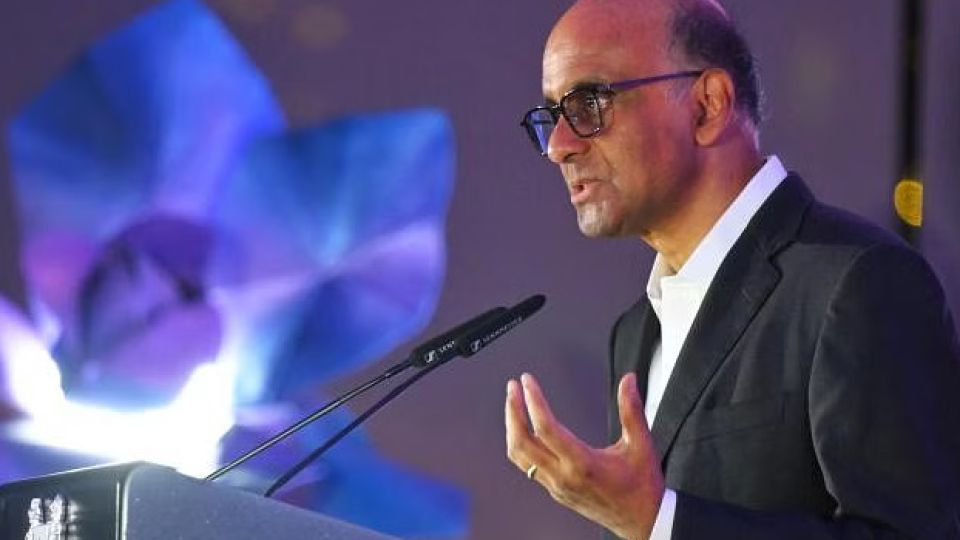SINGAPORE (ANN/THE STRAITS TIMES) – Singapore’s President Tharman Shanmugaratnam, on May 29, emphasised the necessity for regulators to adopt a pragmatic approach towards artificial intelligence (AI), acknowledging that the pace of AI development has surpassed that of public policy.
He urged for a focus on the “next best option,” aiming to maximise AI’s benefits while minimising potential drawbacks.
Speaking at the Asia Tech x Singapore conference’s opening gala, attended by tech industry professionals and leaders, President Tharman highlighted the crucial role of AI innovation in enhancing lives.
The annual event, organised by the Singaporean Infocomm Media Development Authority, gathers approximately 4,000 global industry players to delve into topics ranging from AI and quantum computing to sustainability.
President Tharman’s 20-minute address at the Gardens by the Bay’s Flower Field Hall tackled pertinent economic and social concerns surrounding AI, crucial issues for lawmakers and economies worldwide.
He underscored the pressing need for regulations to catch up with the rapid advancements in AI, emphasising the importance of adopting achievable solutions.
“We cannot leave AI to the law of the jungle,” he said, adding that doing so would allow the largest players in AI to dictate norms, and can lead to job losses, societal distrust and even war.
“What does getting regulation right mean? We cannot realistically aim to ensure that AI only delivers good. It is not realistically achievable,” said the former coordinating minister for social policies.
Avoiding risk altogether would mean “putting a moratorium” on all the potential good that AI can achieve.
Regulating AI must be the art of the “next best” option, he said – “to get the most good out of AI and avoid the worst”.
AI has the potential to improve healthcare and education, detect fraud and tackle climate change. But efforts must also be made to address job displacement and deal with AI-fuelled disinformation.
Recent studies show that AI has some way to go to earn the trust of the people.
Nearly half of 545 full-time workers in Singapore polled in a survey by software company Salesforce in May said that they found it difficult to get what they want out of AI, and 40 per cent said they do not trust the data used to train AI systems.

Most of those who do not trust AI are hesitant to adopt it, the study found, even as AI tools are being launched into the mainstream.
Nearly six in 10 respondents also fear humans will lose control of AI.
Yet, the pressure is on for Singapore to remain at the front of the AI race to keep its competitiveness as a small nation.
A separate study by Intel – the Asia/Pacific AI Maturity Study 2024 – found that Singapore’s greatest challenge is that of scale, which inevitably requires it to innovate faster than its competition to stay ahead.
Mr Tharman said AI’s challenges also come with opportunity, such as the potential to give less-educated workers the opportunity to do tasks that would previously have been reserved for higher-skilled workers.
Communities need to avoid a scenario where workers with middle skills are displaced, he said, adding that Singapore has made it a priority to help workers upgrade their skills.
“What happens to jobs 10 (to) 20 years down the road depends on what you do now.”
He described challenges linked to AI, along with climate change, as the most pressing complex and important challenges of our time.
“Just like climate change, it is critical. We cannot wait until after the fact to know the consequences of a new generation of AI – whether the good will outweigh the bad,” Mr Tharman said.
“We can’t wait till we wake up and find out if the singularity has arrived,” he added, referring to a hypothetical point in the future when AI surpasses human intelligence and becomes completely unpredictable.
“Or whether superintelligence has come upon us, where machines are able to do better than humans,” he said, urging the industry to shape how AI is developed and used.
Given the complexity of AI, the industry must seek early wins in regulating AI to gain momentum in achieving what is attainable, Mr Tharman said.
He urged tech players, researchers and nation leaders in the audience to collaborate to tackle the challenges of digitalisation.
He said: “Whether we get a world of plentiful and better jobs, a world safe for democracy, depends on what we do now, working collaboratively… to shape technological evolution so it delivers the best and we avoid the worst.”


